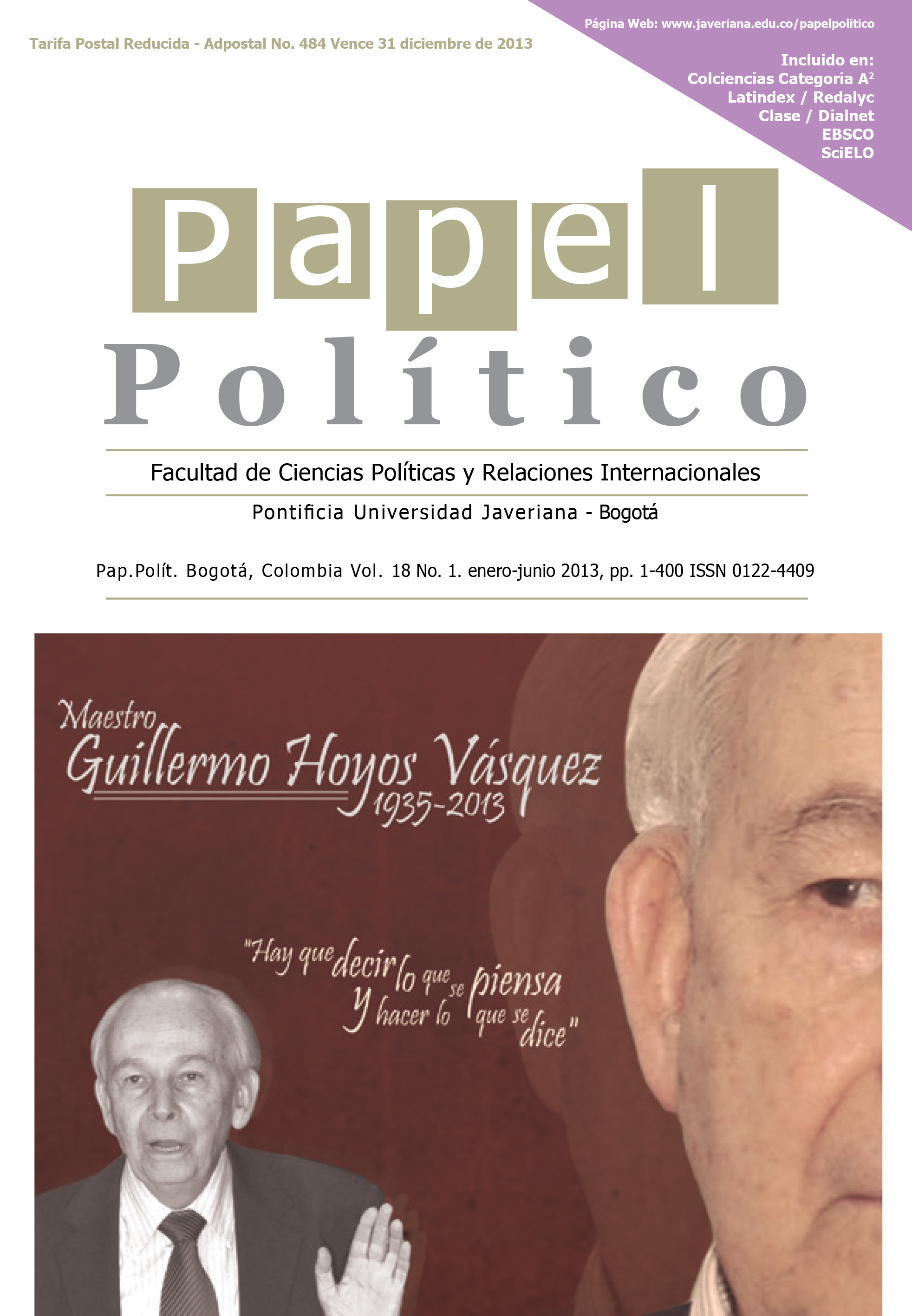Resumen
El artículo trata el problema de si –en línea con el acercamiento económico de China hacia América Latina durante la última década– la región ha experimentado cambios políticos en términos de la política exterior de sus respectivos países, cambiando su alineamiento tradicional con las posiciones del hegemón regional, Estados Unidos. Teniendo en cuenta este enfoque general, el proyecto de investigación se centra en evaluar un tema específico de la gobernanza global: la política del cambio climático. Aquí, encontré una diferencia marcada entre la posición china y la estadounidense, que constituyen dos polos opuestos entre los que deben operar los países latinoamericanos. Tuve en cuenta dos países en términos de ubicación discursiva entre China y Estados Unidos en materia de la política sobre el cambio climático: Brasil y Chile. Logré identificar cambios discursivos durante esa década que sugieren una alineación política de los dos países latinoamericanos con China.Esta revista científica se encuentra registrada bajo la licencia Creative Commons Reconocimiento 4.0 Internacional. Por lo tanto, esta obra se puede reproducir, distribuir y comunicar públicamente en formato digital, siempre que se reconozca el nombre de los autores y a la Pontificia Universidad Javeriana. Se permite citar, adaptar, transformar, autoarchivar, republicar y crear a partir del material, para cualquier finalidad (incluso comercial), siempre que se reconozca adecuadamente la autoría, se proporcione un enlace a la obra original y se indique si se han realizado cambios. La Pontificia Universidad Javeriana no retiene los derechos sobre las obras publicadas y los contenidos son responsabilidad exclusiva de los autores, quienes conservan sus derechos morales, intelectuales, de privacidad y publicidad.
El aval sobre la intervención de la obra (revisión, corrección de estilo, traducción, diagramación) y su posterior divulgación se otorga mediante una licencia de uso y no a través de una cesión de derechos, lo que representa que la revista y la Pontificia Universidad Javeriana se eximen de cualquier responsabilidad que se pueda derivar de una mala práctica ética por parte de los autores. En consecuencia de la protección brindada por la licencia de uso, la revista no se encuentra en la obligación de publicar retractaciones o modificar la información ya publicada, a no ser que la errata surja del proceso de gestión editorial. La publicación de contenidos en esta revista no representa regalías para los contribuyentes.


